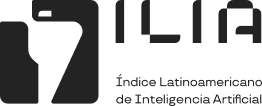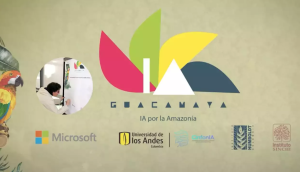The “Ethical, Responsible, and Transparent Algorithms” initiative, led by GobLab, the public innovation lab at Adolfo Ibáñez University, promotes the integration of ethical principles into public procurement algorithms that utilize AI or data science.
This pioneering project in Latin America has developed replicable tools to enhance transparency and prevent discrimination in pubArtificial Intelligence (AI) is a branch of computer science that uses algorithms and data to make autonomous predictions and decisions. Algorithms direct the machine’s actions, while data allows it to learn and improve its performance. To date, several countries have adopted AI for managing public services to make processes more efficient, such as those related to public administration.
One area where this technology has been applied is in social services, including the selection of beneficiaries for financial aid, managing hospital waitlists, and school admissions. But who ensures that these systems are free from gender, racial, ethnic, or social biases? Who explains to a mother why her child wasn’t selected for her preferred school and what data the AI used? Or to a business why its project was rejected by the state? This raises another key question: how is personal data from applicants protected?
In response to these concerns, the GobLab public innovation lab at the Adolfo Ibáñez University School of Government launched the Ethical, Responsible, and Transparent Algorithms project, introduced in Chile in 2020. Coinciding with the late 2019 launch of fAIr LAC—an initiative to promote ethical AI in Latin America and the Caribbean—GobLab’s director and project lead, María Paz Hermosilla, coordinated discussions with the Inter-American Development Bank’s innovation lab, BID Lab, to secure funding and address these challenges. Public procurement became the starting point.
“We found it intriguing to focus on public procurement. We saw an opportunity to foster public-private collaboration, raise awareness, and build capacity in ethical AI, while developing concrete tools to ensure a positive social impact,” explains BID Lab lead specialist Carolina Carrasco.
Thus, after ChileCompra formally joined the project in 2020, additional collaborators came on board, including the Digital Government Division, the Council for Transparency, the Ministry of Science, and the startup accelerator Magical.
Four years since its inception, this pioneering initiative in Latin America has developed innovative, replicable tools for the entire region.
Citizen Protection
A milestone in the Ethical, Responsible, and Transparent Algorithms project—and a first in Latin America—is the approval by the Office of the Comptroller General of standardized guidelines for public procurement of data science and AI services by the state, developed by ChileCompra as part of the GobLab initiative.
For the first time, these guidelines establish rigorous requirements for transparency, fairness, and data protection to ensure that public services can procure, for instance, predictive models, benefit allocation algorithms, or user personalization systems without bias or opacity. “This not only improves the efficiency of government acquisitions but also strengthens public trust in government management and fosters equal opportunities for suppliers and contractors,” says Hermosilla.
David Escobar, analyst in the Studies and Business Intelligence Division of ChileCompra, explains that the entity is responsible for establishing purchasing policies and guidelines, issuing regulations, and ensuring the protection of citizen information and transparency. “In the case of Ethical Algorithms, we seek to ensure that AI-related purchases consider bias reviews to prevent negative impacts on citizens, guaranteeing that public resources are allocated fairly and without discrimination,” he says.
Another pioneering tool, developed in collaboration with the Council for Transparency, is the “General Guide for Algorithmic Transparency,” for which over 800 public organizations were surveyed on their algorithm usage, and the integration of algorithmic transparency into Chilean regulation was studied. “With support from BID Lab, a draft was developed, piloted with seven algorithms across four public organizations, and the final regulation was published in 2023, marking the first Latin American regulation on this matter,” states the director of UAI’s GobLab.
Meanwhile, the Digital Government Division collaborated on the creation of the «Ethical Framework for Data Science Projects,» which provides tools for public officials to address legal and ethical challenges in AI systems. “Data is a strategic asset for public administration, enabling faster service delivery and anticipating user needs with tools like AI. For example, the Social Security Institute processes benefit payments directly by integrating data, eliminating the need for individuals to apply. Concrete tools, like those from this project, help institutions meet minimum standards, ensuring transparency and bias mitigation in algorithms,” says Kareen Scharmm, coordinator of Policies and Studies at the Digital Government Division.
Investors and Audits
The Ministry of Science, Technology, Knowledge, and Innovation contributed to developing the experimental methodology fAIr Venture, which assesses ethical risks and social impacts of AI technology investments. “Our role as a public service is to ensure that algorithms are fair, do not perpetuate biases, avoid arbitrary discrimination, and, fundamentally, do not violate fundamental rights. This is also important for the private sector, as they are the primary providers of these technologies for the public system,” says Alondra Arellano, AI advisor at the Ministry.
The second phase of the project, initiated in July 2023 with funding from the National Agency for Research and Development, will extend until 2025. The GobLab team has already launched two tools: an “Algorithmic Transparency Report Card” and a “Statistical Bias and Fairness Measurement” that will allow for algorithmic audits of systems in use in the public sector. “Specific tools will be used to evaluate developing algorithms, enabling institutions to determine their transparency and detect biases that require adjustment. These tools will be applied across various pilots, ensuring algorithms meet minimum regulatory standards,” says Scharmm.
Although BID is no longer formally involved in this second phase, Carolina Carrasco notes that they will continue to support the project through fAIr LAC, as they are convinced that fostering this type of collaborative work can accelerate social impact, improve quality of life, and promote economic growth in the region. “The UAI Ethical Algorithms project is a remarkable example. They have already demonstrated a clear path with tools applicable in any geography. With fAIr LAC, we are now looking at how to facilitate the adoption of these tools in other countries across the region.






